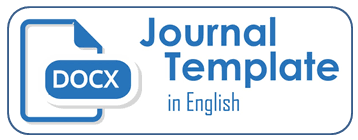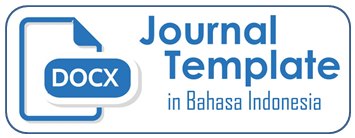THE ROLE OF TAX AUDITS AS A MODERATOR OF TAX AVOIDANCE IN INDONESIA
DOI:
https://doi.org/10.26486/jramb.v11i1.4543Abstract
This study aims to investigate the role of tax audits in moderating the effects of transfer pricing, tax haven, and institutional ownership on tax avoidance. The study focuses on manufacturing companies listed on the Indonesia Stock Exchange (IDX) from 2019 to 2023 with a total of 325 observations. The results show that transfer pricing has a positive impact on tax avoidance, while tax havens does not have a significant effect. In contrast, institutional ownership is found to have a negative effect on tax avoidance. Additionally, tax audits are shown to weaken the positive impact of transfer pricing on tax avoidance, but they are not effective in moderating the effects of tax haven usage or institutional ownership. These findings offer valuable insights for tax authorities, helping them prioritize audits and monitoring efforts based on transfer pricing documentation in various sectors. Furthermore, the study highlights the importance of tax auditors fully utilizing the Automatic Exchange of Information (AEoI) to strengthen oversight of cross-border transactions involving affiliated companies.
References
Amidu, M., Coffie, W., & Acquah, P. (2019). Transfer pricing, earnings management and tax avoidance of firms in Ghana. Journal of Financial Crime, 26(1), 235-259.
Beer, S., De Mooij, R., & Liu, L. (2020). International corporate tax avoidance: A review of the channels, magnitudes, and blind spots. Journal of Economic Surveys, 34(3), 660-688.
Budiman, N.A., Bandi, B., Widagdo, A.K., & Sudaryono, E.A. (2024). The evolution of tax strategies in multinational companies: A historical perspective. International Journal of Disclosure and Governance, 0(0).
Chandrarin, G. (2017). Metode riset akuntansi: Pendekatan kuantitatif. Jakarta: Salemba Empat.
Christmawan, P.E., Rahmawati, L.M., Arisudhana, A., & Kusuma, A. (2024). Pengaruh profitabilitas, ukuran perusahaan dan leverage terhadap tax avoidance. Jurnal Riset Akuntansi Mercu Buana, 10(1), 59-72.
Damayanti, H. H., & Prastiwi, D. (2017). Peran OECD dalam meminimalkan upaya tax agresiveness pada perusahaan multinationality. Jurnal Akuntansi Multiparadigma, 8(1), 79-89.
Dharmapala, D. (2008). What problems and opportunities are created by tax havens? SSRN Electronic Journal.
Dharmawan, P. E., Djaddang, S., & Darmansyah, D. (2017). Determinan penghindaran pajak dengan corporate social responsibility sebagai variabel moderasi. Jurnal Riset Akuntansi & Perpajakan, 4(2), 182-194
Doran, M. (2009). Tax penalties and tax compliance. Harvard Journal on Legislation, 46, 1-52.
Eden, L. (2009). Taxes, transfer pricing, and the multinational enterprise. The Oxford Handbook of International Business.
Falbo, T. D., & Firmansyah, A. (2018). Thin capitalization, transfer pricing aggresiveness, penghindaran pajak. Indonesian Journal of Accounting and Governance, 2(1), 1-28.
Frank, M. M., Lynch, L. J., & Rego, S. O. Tax reporting aggressiveness and its relation to aggressive financial reporting. The Accounting Review, 84(2), 467-496.
Hansen, D. R., & Mowen, M. M. (2005). Management Accounting 7th Edition. Singapore: South-Western of Thomson Learning.
Hanson, J. H., & McNair, D. (2014). Should conservationists continue to dodge the issue of tax dodging?. Oryx, 48(3), 313-314.
Hoopes, J. L., Mescall, D., & Pittman, J. A. (2012). Do IRS audits deter corporate tax avoidance?. The Accounting Review, 87(5), 1603-1639.
Jamei, R. (2017). Tax avoidance and corporate governance mechanisms: Evidence from Tehran Stock Exchange. International Journal of Economics and Financial Issues, 7(4), 638-644.
Khurana, I. K., & Moser, W. J. (2009). Institutional ownership and tax aggressiveness. AAA 2010 Financial Accounting and Reporting Section (FARS) Paper.
Khurana, I. K., & Moser, W. J. (2012). Institutional shareholders’ investment horizons and tax avoidance. Journal of the American Taxation Association, 35(1), 1-40.
Kurniawan, A. M. (2015). Buku pintar transfer pricing untuk kepentingan pajak. Yogyakarta: Andi Offset.
Lee, N. (2017). Can territorial tax compliance systems reduce the tax avoidance of firms with operations in tax havens?. Emerging Markets Finance and Trade, 53(4), 968-985.
Murni, Y., Sudarmaji, E., & Sugihyanti, E. (2016). The role of institutional ownerships, board of independent commissioner and leverage: Corporate tax avoidance in Indonesia. IOSR Journal of Business and Management, 18(11), 79-85.
OECD. (2009). Countering offshore tax evasion.
Roth, G., & Saporoschenko, A. (2001). Institutional ownership of bank shares. Financial Analysts Journal, 57(4), 27-36.
Sekaran, U., & Bougie, R. (2016). Research methods for business: A skill building approach, 7th Edition. New Jersey: Wiley.
Setiawan, H. (2014). Transfer pricing dan risikonya terhadap penerimaan negara. Journal of Chemical Information and Modeling, 53(9), 1689-1699.
Shleifer, A., & Vishny, R. W. (1986). Large shareholders and corporate control. Journal of Political Economy, 94(3), 461-488.
Soraya, L. R., & Rachmawati, N. A. (2021). Determinats of the amount of related party transaction: Tax expense and institutional ownership. Jurnal Reviu Akuntansi dan Keuangan, 11(1), 30-39.
Stiglitz, J. E. (1986). The general theory of tax avoidance. NBER Working Paper Series, 1868, 1-37.
Sugiyono. (2016). Metode penelitian kuantitatif, kualitatif, dan R & D. Bandung: PT Alfabet.
Taylor, G., & Richardson, G. (2012). International corporate tax avoidance practices: Evidence from Australian firms. The International Journal of Accounting, 47(4), 469-496.
Taylor, G., & Richardson, G. (2013). The determinants of thinly capitalized tax avoidance structures: Evidence from Australian firms. Journal of International Accounting, Auditing and Taxation, 22(1), 12-25.
Downloads
Published
Issue
Section
License
Copyright (c) 2025 Nita Andriyani Budiman, Diah Ayu Susanti

This work is licensed under a Creative Commons Attribution-NonCommercial-ShareAlike 4.0 International License.
Authors who publish with (JRAMB) Jurnal Riset Akuntansi Mercu Buana agree to the following terms:
Authors retain copyright and grant the JRAMB right of first publication with the work simultaneously licensed under a Creative Commons Attribution License (CC BY-SA 4.0) that allows others to share (copy and redistribute the material in any medium or format) and adapt (remix, transform, and build upon the material) the work for any purpose, even commercially with an acknowledgement of the work's authorship and initial publication in JRAMB. Authors are able to enter into separate, additional contractual arrangements for the non-exclusive distribution of the journal's published version of the work (e.g., post it to an institutional repository or publish it in a book), with an acknowledgement of its initial publication in JRAMB.
Authors are permitted and encouraged to post their work online (e.g., in institutional repositories or on their website) prior to and during the submission process, as it can lead to productive exchanges, as well as earlier and greater citation of published work (See The Effect of Open Access).












